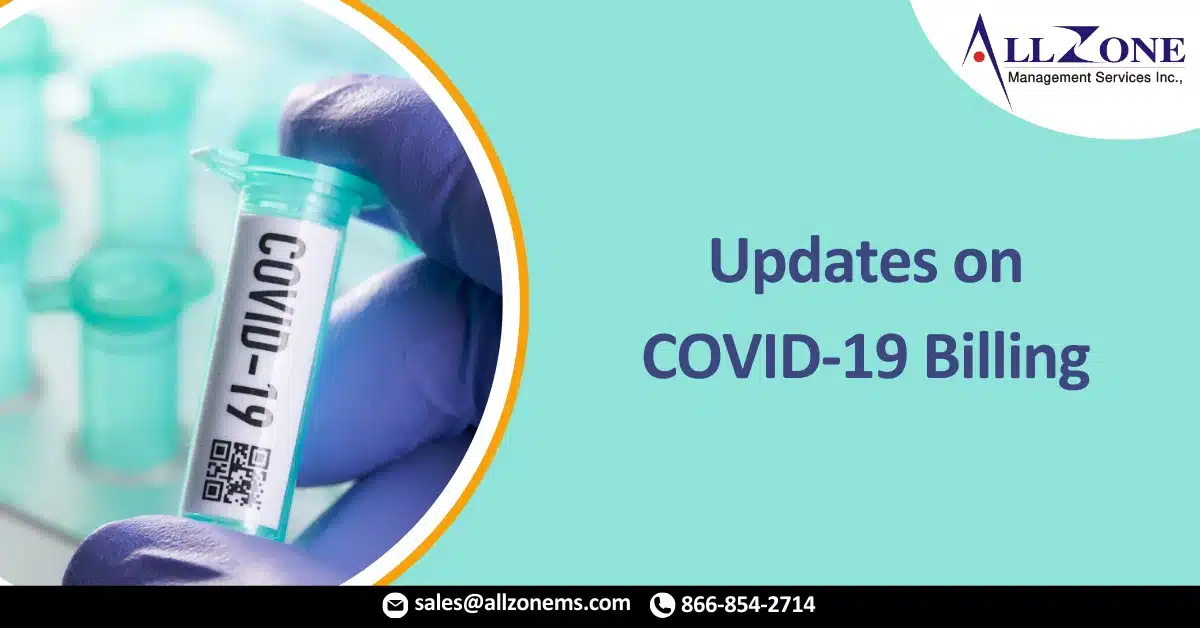The pandemic continues to impact Medicare reimbursement.
COVID-19 continues to make news on the regulatory front with two new directives from the Centers for Medicare & Medicaid Services (CMS), centering on testing for the deadly coronavirus and formal coding edits for the Medicare Administrative Contractors (MACs) on payments with the CS modifier.
There’s a new payment structure from CMS for high-throughput COVID-19 testing, according to Ronald Hirsch, MD, who made the announcement this week on the Monitor Mondays weekly Internet radio broadcast.
“The testing for COVID-19 can be done as a point-of-care test, where the sample is taken and tested immediately, but it can also be collected and sent to a laboratory, where testing is performed and the results reported back to the provider at a later time,” Hirsch said – noting that currently, CMS pays $100 for this test.
Hirsch added that CMS announced that beginning Jan. 1, if the test results are not available to the provider within two calendar days of the specimen being collected, then the payment will be $75.
“The laboratory will need to report not only the code for the test itself, but also its use of an add-on code, U0005, to indicate that the results were provided within two calendar days,” Hirsch told audience members. “As far as I know, this is the first time that CMS has used a payment structure based on the timing of the results.”
According to Hirsch, either CMS is penalizing laboratories that cannot produce fast results by only paying $75 compared to the $100 they now receive, or the agency has made a global payment adjustment and is now rewarding labs that can produce results quickly.
“Either way, it will be interesting to watch if this is a single use of this payment structure, or whether we will see it adopted for other services in the future,” Hirsch said.
In another development, Hirsch reported on the release of formal coding edits for MACs on payment for services reported with the CS modifier. The CS modifier is placed on evaluation and management (E&M) services for COVID-19 visits, resulting in Medicare paying 100 percent of the allowed amount, rather than the usual 80 percent.
Hirsch said that there has been significant confusion about when this modifier should be used, noting that many providers have attached the CS modifier to any service provided during the visit, including X-rays and other diagnostic tests.
“So now the problem is, what will happen to services that had the CS modifier inappropriately (applied) and were paid at 100 percent prior to these edits being put in the system?” Hirsch said. “Will the MACs go back to the beginning of the public health emergency (PHE) and adjust all of those claims, and recoup the extra 20 percent that they paid, or will it be the responsibility of the provider to go back through all of these and refund that 20 percent?”
Hirsch also wondered aloud whether, if the 20 percent is refunded or recouped, how does the claim then get submitted to any secondary insurance for coverage?
“If hospitals start billing patients for that balance, there is certainly going to be a lot of confusion and anger,” Hirsch warned. “Furthermore, if the MACs do not recoup it and the hospitals do not refund it, will CMS give the Recovery Audit Contractors (RACs) permission to audit claims for this?”
Hirsch noted that if RACs do so, such action would represent a potential windfall for them, since it’s an automated review and would be certain to find many overpayments.
In the meantime, Hirsch urged those working in revenue integrity to review their facility’s use of the CS modifier in the early days and see if they are at risk.
For More Information: https://www.racmonitor.com/updates-on-covid-19-billing-and-cs-modifier-audits

